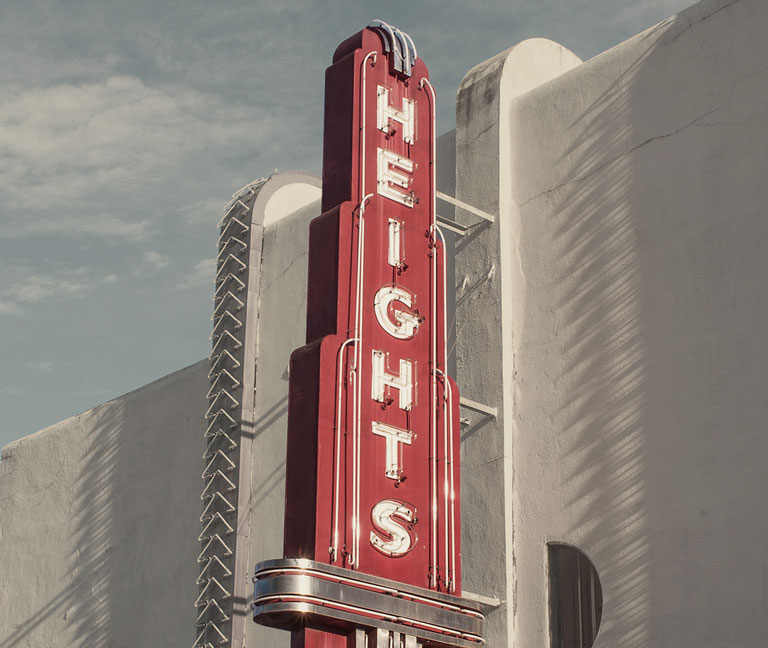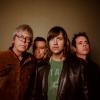Upcoming Events
|
Sat
7
FEB
|
7:00pm
|
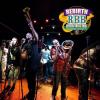 |
The Heights Theater
-
Houston
TX
The Grammy Award-winning Rebirth Brass Band with special guests Yaupon
Rebirth Brass Band, Yaupon
|
|
Tue
10
FEB
|
7:00pm
|
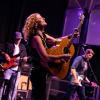 |
The Heights Theater
-
Houston
TX
An Evening with Kathleen Edwards
Kathleen Edwards
|
|
Thu
12
FEB
|
7:00pm
|
 |
The Heights Theater
-
Houston
TX
An Evening with Bruce Hornsby
Bruce Hornsby
|
|
Fri
13
FEB
|
7:00pm
|
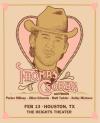 |
The Heights Theater
-
Houston
TX
Thomas Csorba with special guests Parker Millsap, Jillian Edwards, Matt Tedder, and Kelley Mickwee
Thomas Csorba, Parker Millsap, Jillian Edwards, Matt Tedder, Kelley Mickwee
|
|
Sat
14
FEB
|
7:00pm
|
 |
The Heights Theater
-
Houston
TX
Kat Edmonson - Only the Bare Essentials
Kat Edmonson
|
|
Sun
15
FEB
|
7:00pm
|
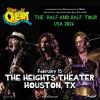 |
The Heights Theater
-
Houston
TX
Sons of Cream with special guest Moses Guest
Sons of Cream, Moses Guest
|
|
Tue
17
FEB
|
7:00pm
|
 |
White Oak Music Hall
-
Houston
TX
Stephen Wilson Jr. (rescheduled to WOMH on 2 / 17)
Stephen Wilson Jr., Shelby Stone
|
|
Wed
18
FEB
|
7:00pm
|
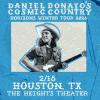 |
The Heights Theater
-
Houston
TX
Daniel Donato’s Cosmic Country
Daniel Donato
|
|
Tue
24
FEB
|
7:00pm
|
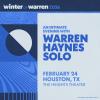 |
The Heights Theater
-
Houston
TX
Warren Haynes Solo - Winter of Warren 2026
Warren Haynes
|
|
Wed
25
FEB
|
7:00pm
|
 |
The Heights Theater
-
Houston
TX
Ruston Kelly – Pale, Through the Window Tour (rescheduled from 1 / 22 to 2 / 25)
Ruston Kelly
|
|
Sat
28
FEB
|
7:00pm
|
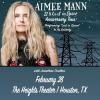 |
The Heights Theater
-
Houston
TX
Aimee Mann, 22 ½ Lost In Space Anniversary Tour with special guest Jonathan Coulton
Aimee Mann
|
|
Fri
6
MAR
|
7:00pm
|
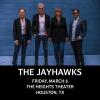 |
The Heights Theater
-
Houston
TX
The Jayhawks
|
|
Sat
7
MAR
|
7:00pm
|
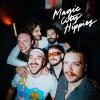 |
The Heights Theater
-
Houston
TX
Magic City Hippies with special guest Supertaste
Magic City Hippies, Supertaste
|
|
Thu
12
MAR
|
7:00pm
|
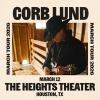 |
The Heights Theater
-
Houston
TX
Corb Lund with special guest Branson Anderson
Corb Lund, Branson Anderson
|
|
Fri
13
MAR
|
7:00pm
|
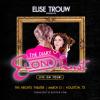 |
The Heights Theater
-
Houston
TX
Elise Trouw presents: The Diary of Elon Lust Tour
Elise Trouw, Damoyee
|
|
Fri
20
MAR
|
7:00pm
|
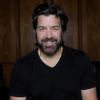 |
The Heights Theater
-
Houston
TX
Bob Schneider with special guest Jo James
Bob Schneider
|
|
Sat
21
MAR
|
7:00pm
|
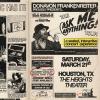 |
The Heights Theater
-
Houston
TX
Donavon Frankenreiter with special guests Hendrix Frankenreiter and The Sunday Spins
Donavon Frankenreiter, Hendrix Frankenreiter, The Sunday Spins
|
|
Wed
25
MAR
|
7:00pm
|
 |
The Heights Theater
-
Houston
TX
Wild Child
|
|
Thu
26
MAR
|
7:00pm
|
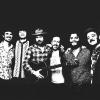 |
The Heights Theater
-
Houston
TX
The California Honeydrops - Shine Delights Tour 2026
The California Honeydrops
|
|
Fri
27
MAR
|
7:00pm
|
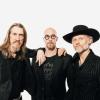 |
The Heights Theater
-
Houston
TX
The Wood Brothers
|
|
Sat
28
MAR
|
7:15pm
|
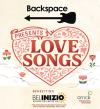 |
The Heights Theater
-
Houston
TX
Backspace presents "Love Songs" benefiting Bel Inizio
Backspace
|
|
Thu
2
APR
|
7:00pm
|
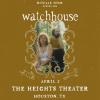 |
The Heights Theater
-
Houston
TX
Watchhouse
|
|
Fri
10
APR
|
7:00pm
|
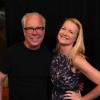 |
The Heights Theater
-
Houston
TX
Stories & Songs: An Evening with Radney Foster & Kelly Willis
Radney Foster, Kelly Willis
|
|
Sat
11
APR
|
7:00pm
|
 |
The Heights Theater
-
Houston
TX
Off Book - The Improvised Musical
Off Book the Improvised Musical
|
|
Sun
12
APR
|
7:00pm
|
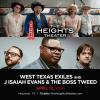 |
The Heights Theater
-
Houston
TX
West Texas Exiles and J Isaiah Evans & the Boss Tweed
West Texas Exiles, J Isaiah Evans & the Boss Tweed
|
|
Thu
16
APR
|
7:00pm
|
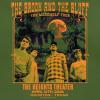 |
The Heights Theater
-
Houston
TX
The Brook & The Bluff with special guest Ethan Tasch
The Brook & The Bluff, Ethan Tasch
|
|
Fri
17
APR
|
7:00pm
|
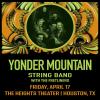 |
The Heights Theater
-
Houston
TX
Yonder Mountain String Band with special guest The Fretliners
Yonder Mountain String Band, The Fretliners
|
|
Sun
19
APR
|
7:00pm
|
 |
The Heights Theater
-
Houston
TX
An Evening with Colin Hay
Colin Hay
|
|
Thu
23
APR
|
6:00pm
|
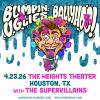 |
The Heights Theater
-
Houston
TX
Ballyhoo! and Bumpin Uglies
Bumpin Uglies, Ballyhoo!, The Supervillains
|
|
Fri
24
APR
|
7:00pm
|
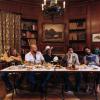 |
The Heights Theater
-
Houston
TX
The Band Of Heathens with special guest The Last Jimenez
The Band Of Heathens, The Last Jimenez
|
|
Sat
25
APR
|
7:00pm
|
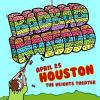 |
The Heights Theater
-
Houston
TX
BADBADNOTGOOD
Badbadnotgood
|
|
Sun
26
APR
|
7:00pm
|
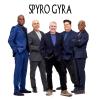 |
The Heights Theater
-
Houston
TX
Spyro Gyra
|
|
Wed
29
APR
|
7:00pm
|
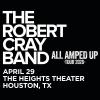 |
The Heights Theater
-
Houston
TX
Robert Cray
|
|
Thu
30
APR
|
7:00pm
|
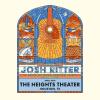 |
The Heights Theater
-
Houston
TX
An Evening with Josh Ritter
Josh Ritter
|
|
Fri
1
MAY
|
7:00pm
|
 |
The Heights Theater
-
Houston
TX
Madam Radar and Paul McDonald
Paul Mcdonald, Madam Radar
|
|
Sat
2
MAY
|
7:00pm
|
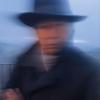 |
The Heights Theater
-
Houston
TX
Alejandro Escovedo & The Electric Saints
Alejandro Escovedo
|
|
Tue
12
MAY
|
6:30pm
|
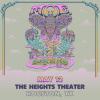 |
The Heights Theater
-
Houston
TX
moe. - Born to Fly Tour
moe.
|
|
Wed
13
MAY
|
7:00pm
|
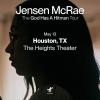 |
The Heights Theater
-
Houston
TX
Jensen McRae - God Has A Hitman Tour
Jensen Mcrae
|
|
Thu
11
JUN
|
7:00pm
|
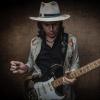 |
The Heights Theater
-
Houston
TX
Ian Moore Vinyl Release - 30th Anniversary of Modern Day Folklore
Ian Moore
|
|
Tue
16
JUN
|
7:00pm
|
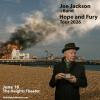 |
The Heights Theater
-
Houston
TX
Joe Jackson + Band - Hope and Fury Tour 2026
Joe Jackson
|
|
Sat
20
JUN
|
7:00pm
|
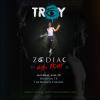 |
The Heights Theater
-
Houston
TX
Troy Doherty
|

